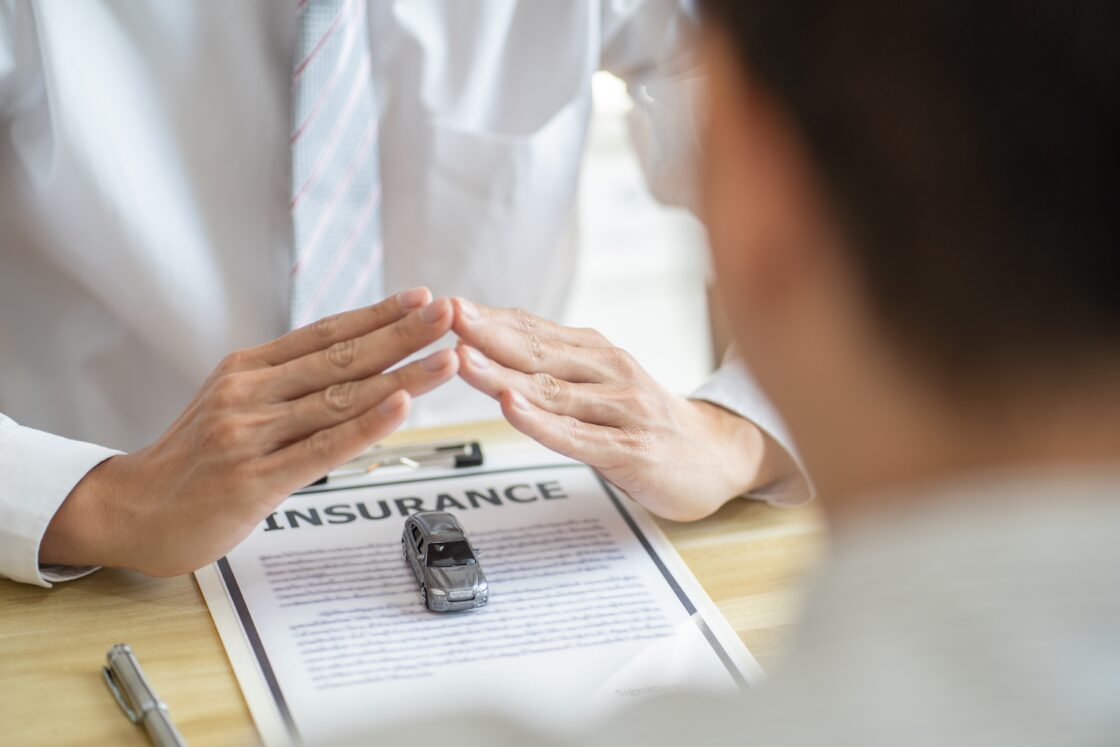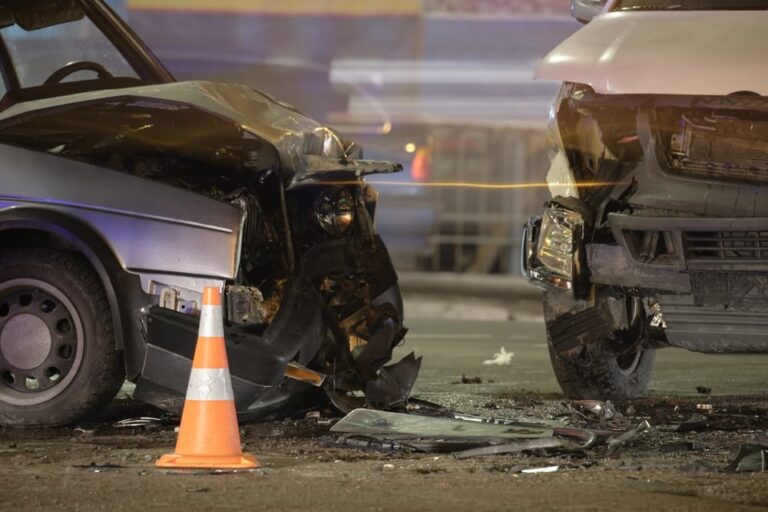It can be a huge relief to walk away from a car crash feeling okay. You are back in the comfort of your home, the sound of crunching metal and sirens fading away.
The adrenaline that surged through you during the incident is starting to wear off, and you take stock. You have a few scrapes, maybe you feel a bit shaky, but overall, you feel uninjured. The thought of going to a doctor for a medical exam after a car accident might seem like an unnecessary hassle.
This feeling is completely normal and understandable. Many people believe that if there is no immediate, obvious pain, then there is no real injury. However, the moments and days following a collision are a critical window of time, both for your physical well-being and for protecting your rights. A trusted Chicago car accident lawyer can help ensure that your rights are preserved from the start.
What you do, or do not do, can have long-term consequences.
- You might be thinking about the cost of a doctor’s visit.
- You might believe that “toughing it out” is the best approach.
- You might simply want to put the entire stressful event behind you as quickly as possible.
These thoughts are valid, but getting a professional medical evaluation is a step that can safeguard your health and your future.
The Adrenaline Effect: Why You Might Not Feel Pain Immediately After a Crash
One of the main reasons people underestimate their injuries is because of the body’s natural response to trauma. During a stressful event like a car wreck, your body floods with adrenaline and endorphins.

Adrenaline is a hormone that prepares your body for a “fight or flight” response, increasing your heart rate and sharpening your senses. Endorphins are the body’s natural painkillers.
This chemical cocktail is powerful and can effectively mask pain and other symptoms of injury for hours or even days.
You might feel well enough to walk around your neighborhood or even tackle your commute to the Loop the next day, only to wake up later with severe pain and stiffness. This delay is common and does not mean the injury is not serious.
- Delayed Onset is Deceiving: The absence of immediate pain is not proof of the absence of injury. Your body is just doing its job to help you survive a traumatic situation.
- The Crash “Wears Off”: As adrenaline levels return to normal, the pain-masking effect disappears, and the true extent of your injuries can become painfully clear.
Creating a Timeline: The Role of a Medical Exam After a Car Accident in Your Claim
Beyond your immediate health, a prompt medical exam serves a vital function if you later need to file a personal injury claim. In any claim, you must be able to show a direct link between the other driver’s actions and the injuries you sustained.
This legal concept is called causation, which simply means proving that the accident caused your harm. An insurance company for the at-fault driver will look for any reason to dispute this link.
When you see a doctor right away, you create an official record that documents your physical state shortly after the incident. This medical record becomes a key piece of evidence.
If you wait weeks to seek treatment, an insurance adjuster might argue that your injury could have happened somewhere else in the meantime, perhaps from a fall at home or a strain at the gym.
- Establishes a Clear Timeline: A medical report dated a day or two after the crash is powerful proof that connects your injuries directly to the collision.
- Documents Your Initial Complaints: The doctor will note everything you report, even minor aches. These “minor” issues can sometimes develop into more significant problems later.
- Provides a Professional Diagnosis: A doctor’s official diagnosis carries much more weight than you simply saying you were hurt.
Beyond Bumps and Bruises: Unseen Injuries After a Collision
Many of the most common injuries from car accidents are not visible to the naked eye. They are internal and may not present symptoms right away. A medical professional is trained to look for the subtle signs of these conditions.
Whiplash and Soft Tissue Injuries: A Medical Exam Can Spot Them

Soft tissue injuries are damage to muscles, ligaments, and tendons. Whiplash is a specific type of soft tissue injury to the neck caused by the forceful, rapid back-and-forth movement of the head during a crash.
It is one of the most frequently reported injuries after a rear-end collision.
Symptoms of whiplash can be subtle at first and may include:
- Neck pain and stiffness
- Headaches, often starting at the base of the skull
- Dizziness, fatigue, or blurred vision
Concussions and Traumatic Brain Injuries (TBI): A Critical Reason for a Medical Exam After a Car Accident
A traumatic brain injury, or TBI, is any injury that disrupts the normal function of the brain. You do not have to be knocked unconscious or even hit your head to sustain a concussion, which is a mild TBI. The violent jarring motion of a crash can be enough to cause the brain to impact the inside of the skull.
- Symptoms Can Be Vague: Signs of a TBI can include confusion, memory problems, sensitivity to light or noise, irritability, and difficulty concentrating.
- A Doctor Knows What to Look For: A healthcare provider can perform a neurological exam to check for signs of a TBI that you might not recognize on your own.
- Untreated TBIs Can Worsen: Ignoring a concussion can lead to prolonged symptoms and increase the risk of more severe injury if you suffer another head impact.
Internal Bleeding and Organ Damage
In more forceful impacts, the body can be thrown against the seatbelt, steering wheel, or dashboard. This can cause serious, life-threatening internal injuries that have no immediate outward signs.
A doctor may check for abdominal tenderness, deep bruising, or drops in blood pressure that could indicate internal bleeding or organ damage.
- Dizziness or fainting
- Large areas of deep purple skin
- Abdominal pain or swelling
Seeking a medical evaluation helps to rule out these dangerous conditions or, if they are present, to get you the immediate treatment you need.
Preparing for Your Medical Exam After a Car Accident
Being prepared can help you get the most thorough evaluation possible when you go for your medical exam. Do not downplay your symptoms out of a desire to be tough or to avoid seeming like you are complaining. The doctor needs complete and accurate information to help you.
- Describe the Accident: Tell the doctor how the crash happened. Were you hit from the rear, the side, or head-on? Were you the driver or a passenger? This context helps the doctor understand the forces your body was subjected to.
- Detail Every Symptom: Start from the top of your head and work your way down. Mention any headache, blurred vision, neck stiffness, shoulder pain, backache, tingling in your arms or legs, or knee pain. No symptom is too small to mention.
- Be Honest and Follow Through: Answer the doctor’s questions honestly and be sure to follow all their recommendations, whether it is getting physical therapy, taking prescribed medication, or attending follow-up appointments.
The Financial Side of a Post-Accident Medical Exam
If the accident was not your fault, you may have the right to seek compensation for your losses from the at-fault party’s insurance. This compensation is referred to as damages.
Damages are meant to cover the costs and impacts the accident has had on your life, both economic and non-economic. Medical records are the foundation for proving these damages.
Without medical documentation, building a case for compensation is nearly impossible. An insurance company has little reason to take your claim seriously if you have no proof of injury from a medical professional.
- Calculating Medical Costs: Your medical bills provide a clear, tangible number for the economic damages you have incurred. This includes the initial exam, any diagnostic tests like X-rays or MRIs, and follow-up care.
- Proving Future Needs: If your doctor determines you will need ongoing treatment, like physical therapy or surgery, these records establish the need for compensation to cover those future costs.
- Justifying Pain and Suffering: The medical records also serve as evidence for your non-economic damages, often called “pain and suffering.” Detailed notes about your pain levels, limitations on your daily activities, and the emotional distress of the injury help demonstrate the full impact the crash has had on your quality of life, from being unable to enjoy a walk along Lake Michigan to missing time with your family.
The Risks of a “Wait and See” Approach
Choosing to wait and see how you feel is a gamble with your health and legal rights. From a health perspective, some injuries can worsen significantly without treatment, leading to chronic pain or long-term disability.
From a legal standpoint, a delay creates a gap in your timeline that an insurance company can exploit. Insurance adjusters are trained to minimize payouts. If they see you waiting a week, two weeks, or a month to see a doctor, they will almost certainly use that against you.
This ties into a legal principle known as the duty to mitigate damages, which means you are responsible for taking reasonable steps to prevent your injuries and losses from worsening. Seeing a doctor promptly is seen as a primary step in mitigating your damages.
An adjuster might make arguments like these if you delay seeking care:

- “If you were really hurt in the accident, you would have seen a doctor right away.”
- “Your injury must have been caused by something else that happened in the days after the crash.”
- “Your condition worsened because you failed to get timely treatment, and we are not responsible for that portion of your medical costs.”
Getting that initial medical exam effectively shuts down these common arguments before they can even be made, strengthening your position from the very beginning.
Navigating Your Next Steps with Clarity
The aftermath of a car accident is a confusing and overwhelming time. You are dealing with vehicle repairs, calls from insurance companies, and the disruption to your daily life.
Amid all this chaos, prioritizing your health is a clear, actionable step you can take to protect yourself. A medical exam provides peace of mind, a path to recovery, and the documentation needed to protect your rights. A knowledgeable Chicago personal injury lawyer can also help ensure those rights are upheld as you navigate the next steps.
Frequently Asked Questions About a Medical Exam After a Car Accident
How soon after a car accident should I see a doctor?
It is generally recommended to see a doctor as soon as you can, ideally within 24 to 72 hours of the accident. The sooner you go, the stronger the link between the accident and any injuries that are diagnosed.
Who pays for the medical exam after a car accident?
The payment process can vary. You can use your own health insurance or any Medical Payments (MedPay) coverage you have on your auto insurance policy. In a successful personal injury claim, the cost of all your medical treatment related to the accident is included as part of the damages you seek from the at-fault party’s insurance.
What if I don’t have health insurance?
This is a common concern that prevents people from seeking care. Do not let it stop you. Some healthcare providers and clinics will treat accident victims based on a medical lien.
This is a legally binding agreement that states the provider will wait to be paid for their services out of any future settlement or award you receive from your personal injury claim.
Navigating the complexities of an injury claim can be challenging. If you have been injured in a car accident in the Chicago area and have questions about what to do next, understanding your options is a powerful first step. The team at Walner Law is available to listen to your story and discuss your situation. You can reach us at (312) 410-8496 for a no-cost conversation about your case.


 Skip to content
Skip to content




